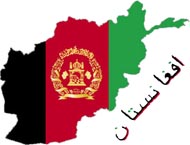"Cyberwar" intensifies ahead of Afghanistan election
 Kabul - The group of insurgents cannot see the helicopter gunship approach in the night.
Kabul - The group of insurgents cannot see the helicopter gunship approach in the night.
The pilots believe the men are in the process of laying a roadside bomb in southern Afghanistan's Sabul province.
The helicopter's on-board camera is whirring to record the scene.
A crew member announces via his headset: "We're going in."
A Hellfire rocket detonates near the group, the helicopter's machinegun fires, and all four men disappear in an explosion of fire and smoke.
The film that recorded the August 5 attack is not classified, but can be accessed on YouTube or on the Facebook page of the International Security Assistance Force (ISAF) in Afghanistan.
Just ahead of the country's election this coming Thursday, the war in Afghanistan also rages in cyberspace as foreign forces have discovered Facebook, Twitter and similar internet sites for their purposes.
At ISAF, United States Navy Lieutenant Commander Adam Clampitt is responsible for new media content.
The reserve officer is skilled at marketing, and worked for a public relations company in civilian life.
The 34-year-old not only developed ISAF's Facebook page but also the site of the US troops in Afghanistan.
A mere two months since its inauguration, more than 25,000 Facebook users have registered themselves as "fans" of the "US Forces - Afghanistan" site.
This was "more than on any other military command site" currently on the internet, asserted Clampitt proudly.
Although the ISAF site has been present on Facebook for only a few days, it is pulling in more and more visitors.
Both Facebook sites - ISAF and USFOR-A - have video clips, photos, audio files and text. Press releases often appear on the page hours before they reach journalists via email.
This is because firewall applications installed by the military frequently delay the delivery of email, while information is being immediately uploaded on Facebook.
The social networking site not only provides fast information access for everyone, but also the opportunity to post replies to any content.
On the US forces' site almost all posters are supporters of the military deployment.
A poster called "Greg Red" recently wrote: "The party appears to be over for Islamic terrorists over there!"
Other posters express their concern for family members deployed in Afghanistan after they browsed casualty reports.
Some thank the US troops for implementing the Facebook page: "From a mom whose son has been in Afghanistan since March. Thank you for giving us a connection to the soldiers who are fighting for us."
Facebook is of course not the only new medium used by the troops. Brief ISAF and US forces announcements are also distributed to mobile phones via Twitter.
Pictures can be browsed on the photo portal Flickr, while videos can be viewed on YouTube.
"The goal is to reach a whole new audience that doesn't get news through traditional means. It is revolutionizing the way we communicate the mission [to the public]," said Clampitt.
The internet is, furthermore, "an efficient way to counter the insurgent propaganda," he said.
For example, the Taliban recently blamed foreign troops for a grenade attack in Afghanistan's south-east that cost civilian casualties.
But a video clip subsequently uploaded by ISAF proved that someone in the crowd had detonated the grenade.
"That [video] has muted the Taliban immediately," said Clampitt.
But not entirely. The Taliban discarded their erstwhile aversion to modern communications technology years ago.
In the past, messages were sometimes posted in up to five languages on the Taliban's own website, including English, but currently can be only read in the local languages Dari and Pashtu.
Links to reports about suicide attacks, where the numbers of victims are invariably grossly inflated, are highlighted in red.
Apart from being frequently blocked, the website is also infested with aggressive computer viruses and must change its internet address frequently.
But despite those virtual attacks against their website, the Taliban are not surrendering in the cyberwar.
Their latest activity was to again revive on the internet their former "Voice of Sharia" radio station that was abandoned by the end of 2001 after the Taliban regime was deposed.
"This is the Voice of Sharia Radio of the Islamic Emirate of Afghanistan," announces the news reader at the beginning of the evening news, which among other content also promises "news from the frontline."
Between news, songs are played with lyrics like "Your blood has been shed on the ground and it looks like tulips" and closing with "Who can capture this country? This is the Land of Lions!"
On one particular evening the Taliban news announced the death of four German soldiers south of Kunduz.
Such an attack did indeed take place, but not one of the soldiers was in fact even injured.
"You can hear [us] 24 hours throughout the world through the internet," the news announcer said later, but his words sounded involuntarily ironic.
After all, the Taliban prohibited the Afghan population from using the internet when they were in power. (dpa)